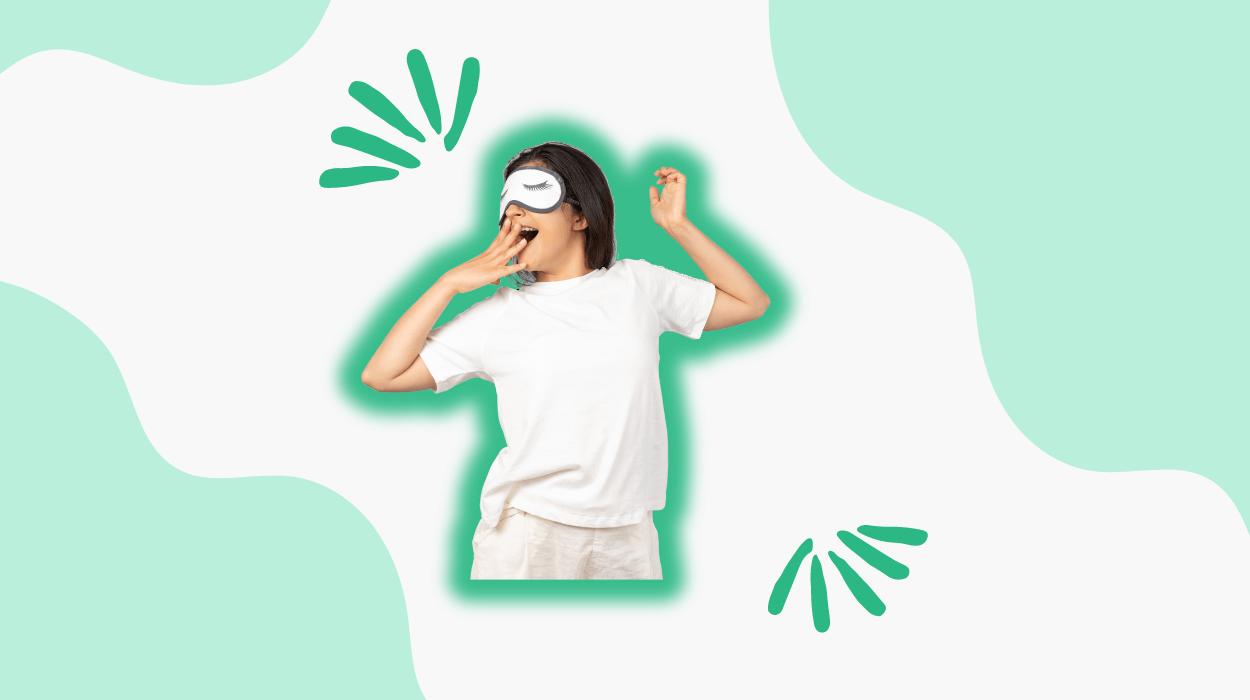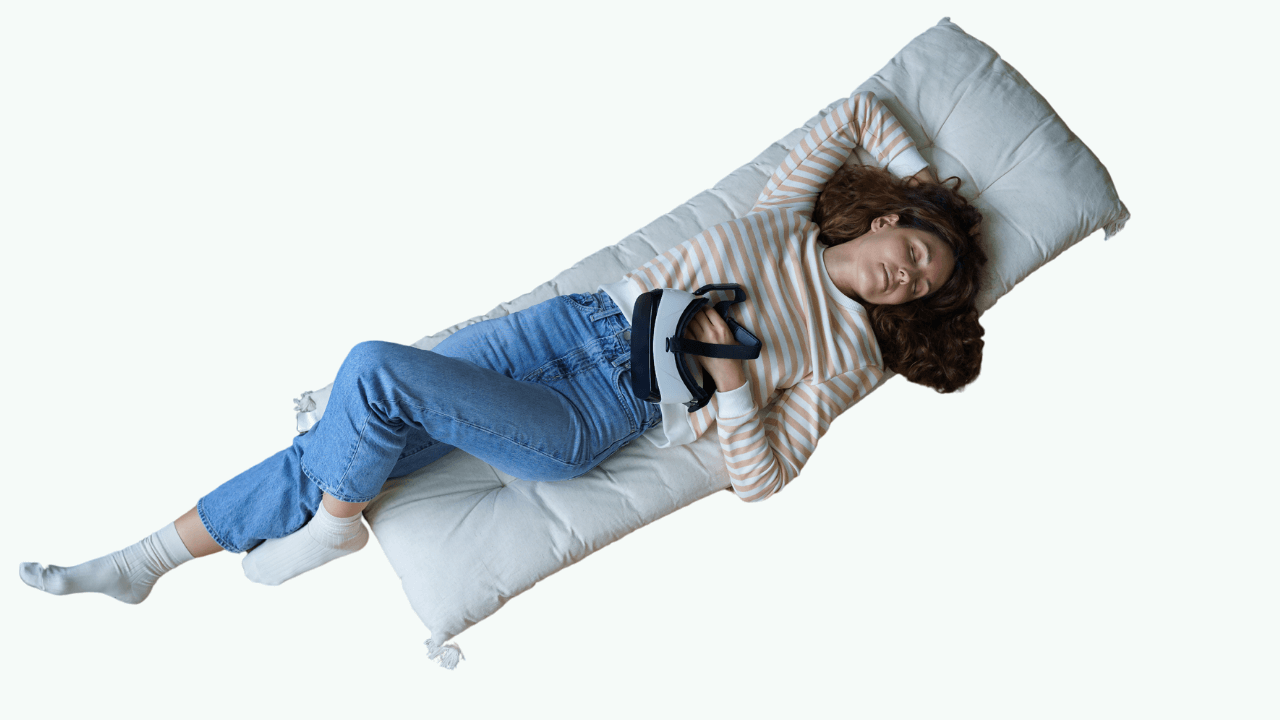

Sleep influences mental and emotional well-being. Excessive worry and nervousness might ruin sleep hygiene by making people overthink any situation.
Sleep disturbances are commonly observed in people with anxiety disorders. Those consumed by worry often find it challenging to fall asleep due to nighttime anxiety.
Lack of sufficient sleep in people may cause stress, creating a cycle of insomnia and anxiety disorders.
Understanding the neurobiological impact of sleep on anxiety levels is vital for managing mental health effectively.
Insufficient sleep has been identified as a factor that could trigger or worsen anxiety disorders. People with obstructive sleep apnea (OSA) have shown higher rates of mental health conditions like panic disorders, anxiety, and depression.
Mental hyperarousal, often characterized by persistent worry, is a significant factor contributing to insomnia among people with anxiety disorders.
Various anxiety disorders, including generalized anxiety disorder, OCD, and PTSD, have been linked to sleeping difficulties. Studies have shown that over 90% of people with combat-related PTSD report symptoms of insomnia.
Anxiety associated with falling asleep could also lead to anticipatory anxiety, affecting healthy sleep routines. It may impact the quality of rapid eye movement (REM) sleep, potentially leading to nightmares and disturbing dreams that disrupt sleep patterns.
This bidirectional relationship between anxiety and sleep deprivation may create a cycle where worrying disrupts sleep, leading to increased stress and vice versa.

Lack of adequate sleep impacts physical health and may also have detrimental effects on mental well-being, particularly concerning anxiety and stress management.
Research shows that severe sleep deprivation could lead to heightened anxiety, depression, and overall distress compared to people who receive sufficient rest.
People suffering from sleep deprivation tend to experience increased anxiety levels during tasks and exhibit a heightened perception of catastrophic outcomes compared to well-rested people.
| Effects of Sleep Deprivation | Impact on Mental Health |
|---|---|
| Impaired judgment | Increased anxiety levels |
| Reduced reaction times | Exacerbation of stress-related disorders |
| Cognitive dysfunction | Heightened emotional distress |
| Increased aggression | Difficulty coping with anxiety |
As evidenced by recent studies and expert insights, deep sleep may play a pivotal role in protecting against anxiety.
Here are some key points to consider:
Given the intricate relationship between anxiety and sleep disturbances, practical strategies may significantly help people fall asleep despite their anxiety.
Some of these include:
The National Sleep Foundation offers age-specific recommendations for adequate sleep duration:
| Age Group | Recommended Hours of Sleep |
|---|---|
| Newborns | 14-17 hours |
| Adults (18-64 years) | 7-9 hours |
| Elderly (65+ years) | 7-8 hours |
Setting a bedtime alarm could help regulate your sleep-wake cycle and ensure you rest properly each night.
Setting the alarm at least 30-40 minutes before your desired bedtime may allow for winding down and transitioning to sleep smoothly.
Remember to adjust your alarm in the morning to maintain a consistent wake-up time.
| Benefits of Setting a Bedtime Alarm | Description |
|---|---|
| Consistent Sleep Schedule | Helps handle your sleep-wake cycle for better rest. |
| Establishes Routine | Signals when it’s time to wind down and prepare for sleep. |
| Promotes Relaxation | Allows for a gradual transition to bedtime activities. |
| Improves Sleep Quality | Helps ensure you get enough rest each night for your well-being. |
Waking up naturally may help the body follow its internal clock, leading to a smoother transition from sleep to wakefulness. This could result in higher energy levels throughout the day without the grogginess often associated with abrupt awakenings by alarms.
Natural wake-ups are linked to better mood regulation and a more optimistic outlook on the day ahead. People may experience a gentle and gradual rise to consciousness by letting the body dictate its waking time.
To establish your sleep schedule effectively, consider the following:
Finding the perfect bedtime may require experimentation, as everyone’s sleep needs vary. If you still rely on your morning alarm to wake you up, consider increasing your bedtime by 15 minutes every three days. This adjustment may help your body to adapt to a new sleep schedule without causing abrupt disruptions to your circadian rhythm. This method may help you establish a consistent sleep routine that promotes sounder sleep quality and overall well-being.
Must Visit:
The intricate relationship between sleep quality and anxiety management may help enhance mental health.
Deep sleep may protect against anxiety. Creating a de-stressing bedtime routine and having a soothing environment to sleep in may help you fall asleep with anxiety.
Setting the alarm and creating a structured sleep schedule to align with your needs is also crucial for sound sleep. It is essential to remain consistent with the set sleep schedule to lower anxiety levels.
Tyler Read earned an undergraduate academic degree from Sonoma State University, California and is a certified personal trainer (CPT) with NASM (National Academy of Sports Medicine). With over 16 years of experience, Tyler has trained clients both online and in-person.
He is passionate about helping others turn their love for fitness into a career. Tyler has worked with many local and commercial gyms before establishing his successful private personal training business, which he continues to operate.
